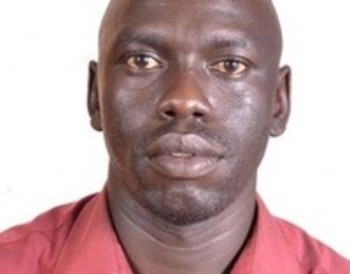South Sudan’s diplomatic relationship with the US has been strained in recent times, with the latter revoking visas and barring all South Sudanese from entering America.
The drastic decision is affecting at least 300,000 South Sudanese, hence is serious and calls for keen attention.
The US, being a superpower at the centre stage of the global governance, could certainly do better than engaging in fights with smaller and poorer states like South Sudan.
South Sudan can ill afford afford to do without partners like the US. The country’s deploring economic and political condition is likely to worsen if abandoned by the partners.
To rebuild trust through cooperation, the South Sudan Government should prioritize accepting the repatriated nationals as urged by the US Secretary of State, Marco Rubio. Such cooperation would demonstrate a commitment to resolving the shared concerns.
The Government of South Sudan should humble itself and apologize to the US for the delay in the repatriation as demanded. Where appropriate, changes should be effected in the South Sudan diplomatic machinery. The diplomatic deployment, policies and practices, should display the diverse national character of the South Sudanese. Variety is wealth and health. Cultural diversity in diplomatic assignment brings together people with different perspectives, experiences and ideas, which leads to increased innovation and creativity. The Government of South Sudan should embrace diversity so that individuals, organizations and societies reap the benefits of creating a more vibrant, inclusive and prosperous world.
The Government of South Sudan should ensure full and consistent humanitarian aid access for the citizens affected by conflict, to demonstrate its willingness to prioritize its people’s welfare. A case in point is the conflict-affected Nasir County of Upper Nile State.
In the spirit of peace, healing, reconciliation and unity, the government should release all the political detainees regardless of the initiated legal proceedings, as requested by the Western and regional diplomats through several press statements and meetings. Such moves would appease the global powers to forgive Juba and its people who are desperate and innocent.
It is written in Matthew 6:14-15: “For if you forgive other people when they sin against you, your heavenly Father will also forgive you. But if you do not forgive others their sins, your Father will not forgive your sins.”
The US will forgive South Sudan and its people if Juba forgives those in detention.
Luke 6: 37-38 says: Do not judge and you will not be judged. Do not condemn, and you will not be condemned. Forgive, and you will be forgiven. Give and it will be given to you. A good measure, pressed down, shaken together and running over, will be poured into your lap. For with the measure you use, it will be measured to you.”
The Holy Quran highlights Allah’s merciful nature, stating: “Allah is Forgiving and Merciful.” (Quran 3:31, 4:64, 5:101).
The South Sudan Government should abide by human rights’ principles such as;
- All are equal before the law and entitled to equal protection (Article 7).
- Everyone is entitled to a fair and public hearing by an independent tribunal (Article 10).
- Everyone charged with a penal offence has the right to be presumed innocent until proven guilty (Article 11).
- Everyone has the right to an effective remedy for acts violating fundamental rights (Article 8).
- No one shall be subjected to arbitrary arrest or exile (Article 9).
To realize healing and reconciliation, the Government of South Sudan should embrace restorative rather than retributive justice, since it is the most appropriate.
“The goal of restorative justice is to repair the harm caused by crime, rather than simply punishing the offender. Victim-offender mediation is a powerful tool for achieving this goal, as it allows victims and offenders to engage in a facilitated dialogue and work towards a restorative agreement”, according to Mark Umbreit, the Director of the Center for Restorative Justice and Peace-making.
South Sudan should heed to the calls of the Western diplomats to facilitate dialogue between President Salva Kiir and his First Vice-President, Dr Riek Machar to realize restorative justice and repair the diplomatic relations.
The Government of South Sudan should implement transparent financial practices and combat corruption to help regain the US trust and potentially ease sanctions.
To strengthen diplomatic channels, the Government of South Sudan should enhance communication through regular, high-level diplomatic engagement between the two nations.
To foster economic cooperation, the Government of South Sudan should explore joint economic initiatives to create mutual interests and strengthen bilateral ties between South Sudan and the US.
To seek international support as a way out of South Sudan’s extreme economic and political vulnerability, the government should collaborate with international organizations like the United Nations to provide a platform for dialogue and help address regional concerns.
To boost regional diplomacy, the Government of South Sudan should strengthen relationships with neighbouring countries and regional partners.
By taking these steps, South Sudan can begin to repair its diplomatic relationship with the US and other nations to pave the way for improved cooperation and mutual benefits.
The author, Yanta Daniel Elisha, is a journalist and an educator with a specialty in English Language and Literature in English as well as a student of Master of Arts in Mass Communication at Victoria University, Kampala-Uganda. He can be reached via yanta30dan3@gmail.com.
The views expressed in ‘opinion’ articles published by Radio Tamazuj are solely those of the writer. The veracity of any claims made is the responsibility of the author, not Radio Tamazuj.




